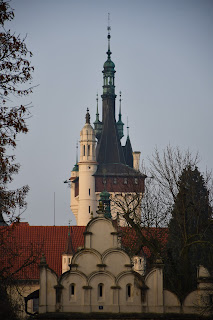Opera Excursions (Part One)
This week,
I finally finished my marathon of Verdi’s 27 operas. Had it not been for a
couple of pleasant surprises, I would almost have been inclined to conclude
that the only Verdi worth listening to is the Verdi you have already heard. For
my own future reference, I am making a little ranking of my favourites below
- Nabucco
- Aida
- La Traviata
- Rigoletto
- Il Trovatore
- Luisa Miller
- La Forza del Destino
- Stiffelio
- Ernani
- I Vespri Siciliani
- Macbeth
To break up these pieces a little – after all, each composer
has their own style and if one isn’t careful, things end up merging together
quite fast – I made some forays into other regions and time periods. I was
blown away by the overture to Fibich’s Šárka, whose themes recur throughout the opera to great effect. I was also
surprised to find that the monumentality of Dvořák’s Vanda ably rivals
Smetana’s glorious Libuše. Dvořák’s
Šelma sedlák perhaps pales in
comparison to Smetana’s Prodaná
nevěsta, which seems to have inspired it, but nevertheless sustains an
air of playfulness and hilarity throughout.
Moving farther East, I thoroughly enjoyed finally listening
to the whole of Borodin’s Prince Igor, which turned out to be much more than
just the Polovetsian Dances. The first act of Tchaikovsky’s Enchantress is also
amazing, especially with the haunting voice of Rimma Glushkova in the titular
role. Nevertheless, having never been much of a fan of Mussorgsky, I did not
really enjoy his Khovanshchina (excepting the move towards the music of the
Caucasus towards the end of the opera), nor did I discover much more to Glinka’s
Ruslan and Ludmila outside of its famous overture.
I also happened upon Pergolesi’s La Serva Pedrona, easily
the funniest baroque opera I have ever listened to.



Comments
Post a Comment